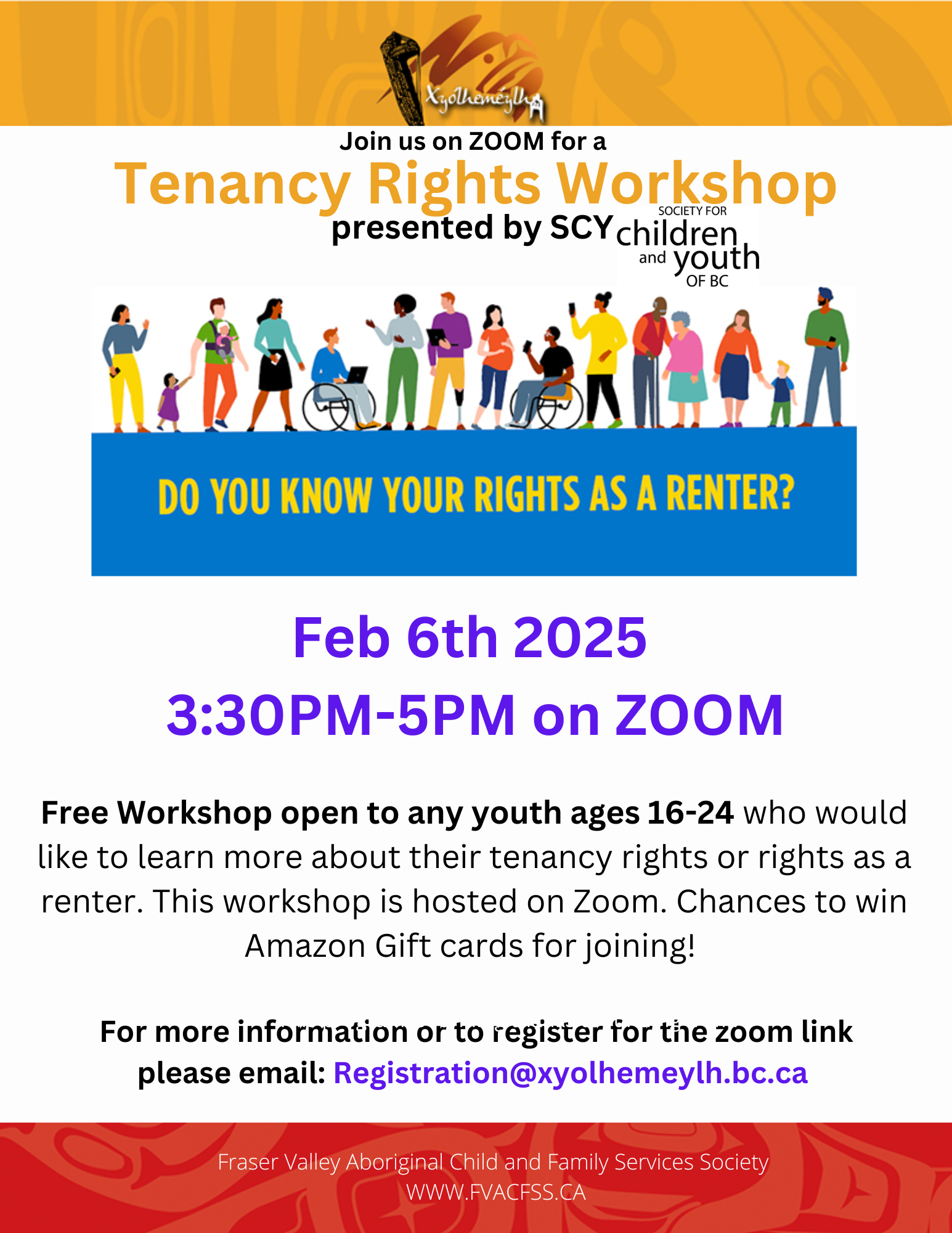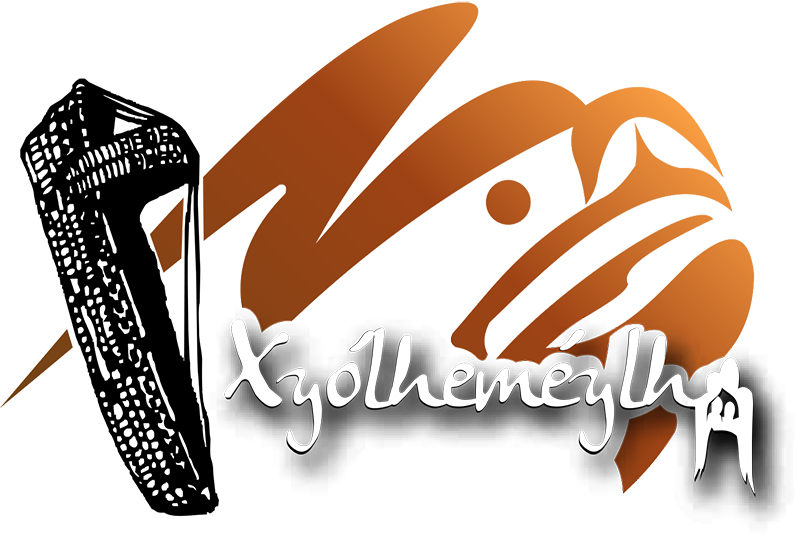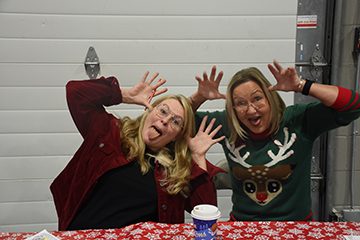Message from the board of directors
Fraser Valley Aboriginal Children & Family Services Society
Sqwélqwel - Xyólheméylh Winter 2025 Newsletter
AGM 2024 - L-R - Phil Hall, Marcella Sunshine, Glenda Campbell, Peter John, Marion Mussell.
Xyólheméylh Board of Directors President’s Message
Welcome to our Winter Newsletter! On behalf of the Xyólheméylh Board of Directors, I am pleased to tell you about the results of our AGM in November and our new Executive Team which was chosen earlier this month.
The new Board consists of myself, Angelina Bowen (President); Joshua Bailey (Vice President); Marcella Sunshine (Secretary);Brooke Metchewais (Treasurer); Marion Mussell; Phil Hall; Glenda Campbell; Peter John; and Kelowa Edel.
We are dedicated to collaborating with our community partners to ensure the safety and wellbeing of the families we serve. We acknowledge the healing power of Indigenous culture and are committed to developing programs and services that connect children and families to their cultural heritage.
The Board is eager to work alongside the Executive Leadership Team, our devoted staff, and Elders of Xyólheméylh to build upon the founders' vision, with a strong emphasis on enhancing prevention services.
We extend our gratitude to our members who attended the AGM and participated in the election of the new board of directors. Your engagement is invaluable to the future of Xyólheméylh.
Wishing everyone a joyful holiday season, and may the new year bring you peace and happiness.
Kw’as hó:y,
Angelina Bowen, President, Xyólheméylh Board of Directors.
About the Xyólheméylh Board of Directors

Wásems ’íksduqʷia – Angelina Bowen – President
Angelina is an urban Indigenous woman from the Haisla Nation – B.C.'s Northwest Coast. Her traditional name is Wásems ’íksduqʷia. Angelina descends from the Robinson family, on her birthmother Margaret (Maggie) Robinson’s side. Her grandmother and grandfather were Lydia Robinson and Stan Shaw; and her biological great grandmother and grandfather were Elsie and Sampson Robinson. Angelina, her kids and grandchildren are from the Eagle Clan.
Angelina was an RCMP officer for 22 years, now retired, having had various roles within the Lower Mainland and the Upper Fraser Valley where she worked proactively and reactively within the Stó:lō Territory. Working alongside other agencies, Angelina felt that taking a community approach was always in the best interest of the children and families. When she had the opportunity, she would speak to youth, teens, and communities throughout Canada on topics such as youth and community wellness, acculturative stress; lateral kindness and about her life being one of the children from the Sixties Scoop.
In September 2007, she was the first Indigenous person in Canada to receive MADD Canada’s “Terry Ryan Memorial Award;” in 2011 Angelina received the “Recognition for Going Above the Call of Duty” from the United States Corp, 49th Marines; in 2013 Angelina received the Imperial Order Daughters of the Empire, British Columbia, Police Community Relations Award, for her 18+ years of volunteering; and in 2014 Angelina received a “Certificate of Recognition” for Outstanding Contributions in the Promotion of World Elder Abuse Awareness Day, from the First Nations Health Authority.
As a proud mother, sister, aunt and grandmother, Angelina plans to actively do her part in helping our children and youth in care, preserving families, supporting caregivers and ensuring the continued success of connecting culture. She is thankful to the members and their support, for the third time, allowing her to sit on the Board so she can be a part of the “transformation” of the needs of the society.
Joshua Bailey – Vice-President
Joshua is Kanien⁷kehá:ka (Mohawk) from Ohswé:ken, Ontario. He currently operates a consulting firm called A:kweks Ventures that specializes in Indigenous child and family welfare prevention programs and Indigenous community development. In the past, he has worked as a family and cultural connections worker and Stó:lō service line family strengthening team leader with Xyólheméylh and as executive director for an urban Indigenous non-profit. He holds a BA in Anthropology and Psychology from Kwantlen Polytechnic University and an MBA from Thompson Rivers University.
Joshua has devoted his career to working within the Indigenous child and welfare system and has more than a decade of experience as a frontline social worker that includes youth and family support services, Indigenous child welfare court programming and First Nations health and wellness projects. Joshua continues to work towards improving and changing existing systems and structures to better serve Indigenous peoples in BC and believes that being a part of this Board will provide such opportunities.
Brooke Metchewais – Treasurer
Brooke is the first generation in her family to not attend residential school, day school or have experienced the direct impact from the Sixties Scoop. Due to intergenerational trauma, like many Indigenous people, she did not have the opportunity to grow up with her culture. From first-hand experience, she understands the human need of belonging, connection and safety. She believes in fostering these needs as a priority to provide youth with the opportunity of growing up in community and staying close to family roots. She is honoured to serve on Xyólheméylh’s Board of Directors because she believes that in order to break cycles, keeping families together and children out of government care should be at the forefront of our practice.
Brooke has managed a finance department for eight years and was responsible for managing contract confidentiality, communicating with stakeholders and delivering financial information to improve client services. With her work for the North American Indigenous Games, she was able to identify gaps within communities. She is passionate about providing the best care for families and keeping traditions alive through culture and language revitalization.
Marcella Sunshine – Secretary
Marcella is the third generation of her family to have grown up and out of government care. She met her birth giver, Natasha Sunshine, for the first time in 2022 and her great grandmother in 2023. Fueled by this lived experience, Marcella is currently running a province-wide cultural revitalization project called VYPER -– Visionary Youth Peers for Equity & Revitalization – funded by the Public Health Agency of Canada. She is also completing her BA at University of the Fraser Valley in Indigenous Peoples Knowledge and Political Science.
Marcella’s great grandmother watched all of her children get taken away during the Sixties Scoop and told her that she wanted a different life for her kids. Being a Board member is a commitment to Marcella because it captures her grandmother’s wish to see all Indigenous children free from cultural and familial poverty.
Marion Mussell
Marion is a member of the Sqwá First Nation. She was born and raised at Oneida of the Thames in Ontario and has lived in Stó:lō Territory for over 50 years. During her two previous Board terms she served in executive positions and participated in committee work. She is pleased to return to the Board because she enjoys the work and the opportunity to contribute in positive ways to the service delivery. Collaborative teamwork is her preferred work style, as she believes teamwork allows for creative and positive results to Board work and decisions. This is important to her because the work of Xyólheméylh impacts people’s lives.
From the Board perspective of governance and oversight she believes it is important to not only meet standards and requirements but to work to exceed standards and requirements on all levels to provide the best services possible to families and communities in a “good way.” Marion works from the belief that the child must be at the center of our work, and their families must have the opportunity to be included in the process. Our identity, values, belief systems and sense of well-being come from our family and community. She feels good to be back on the Board and looks forward to working with her board colleagues.
XaXa Moqw – Peter John
Peter is a member of the Chawathil First Nation. His name is XaXa Moqw that roughly translates to Holy-bird/thunderbird. He has over nine years of experience as a Band Councilor, a member of the Chawathil Care Committee and has served a number of terms for the Board of Directors for the First Nation Health Directors Association. He has also been trained in traditional plant medicine for healing and wellness and continues to practice and learn. He has also taken courses in Halqemeylem language for four years.
His work within his community has taught him that there is a great need for awareness and readiness to work in a collaborative way with his people to meet the needs of children, youth and families. He believes that the people in his community and surrounding communities have been through much history in such a short time and are landing solidly on their feet to assert their existence. People need to recover and have time to have good healing and family connections.
Peter wanted to be a part of the Xyólheméylh Board of Directors in order to have a voice in the guiding principles for how Xyólheméylh delivers services to our communities. He would like to continue the work with the Board of Directors in completing numerous policy and working manuals that benefit Board members in the work that they do on behalf of the members of the society.
He believes that Indigenous rights must be protected. Keeping children with their families is the most important work that we do.
Wab’shkaan E’quet E’kway – Kelowa Edel
Kelowa was one of the first Xyólheméylh employees hired with the agency back in 1993. She was a Family Support Worker, Team Lead, Social Worker, and Ed of Quality Assurance. She then went on to the Stó:lō Service Agency Health Services as a Community Engagement Coordinator and then on nurturing and developing the health department as the Health Director. The goal was to create a “Culture of Healing,” understanding that as service providers they needed to be on their own healing journey if they were to help people on theirs.
Over the past 32 years she has served on many boards. She was Xyólheméylh’s representative at the BC First Nations Directors table for child and family services. She was also on the board with Cindy Blackstock as an ED for the Caring for First Nations Children Society and then as BC rep for the National board with Cindy in Ottawa.
Salacy-a-til – Phil Hall
Phil is from Skowkale First Nation and has almost 50 years experience working for Indigenous people, including as Chief of his First Nation, Manager of the Chilliwack Area Indian Council, two terms as an Alderman with the City of Chilliwack and as a health worker for the Assembly of First Nations. He wanted to be on Xyólheméylh’s board of directors to be part of the positive changes taking place and to move forward in a positive way to serve Indigenous families in the Fraser Valley and to keep Indigenous children with their families.
Che’lotsowe’t – Glenda Campbell
Glenda is from the Ch’iyaqtel (Tzeachten) First Nation and has two children and was blessed with eight grandchildren. Glenda has experience with boards such as the Xholemet Society, which now goes by Wilma’s Transition House. She also sat on the Coqualeetza Board for a couple of terms, was a member of the Executive for the Stó:lō Nation Chiefs, and served on the Women’s Council for British Columbia. She also has 30 years of experience as a Band Councilor and 6 years as a Chief. She also assisted with cross-border children to ensure Canadian children returned home.
Glenda has dedicated her life to working with the communities. If children must be in care, she believes that children should be placed with their families, grandparents and aunties and uncles and siblings. This retains their culture and is less traumatic for the child. Glenda wanted to be on Xyólheméylh’s Board because her goal and desire is to see the number of children in care reduced and have children brought back to their home communities. She has served on the Board for 5 years. Seeing more preventative dollars come to the agency is also a priority for Glenda. She wants to be a voice for all children to ensure that the agency is doing all they can do to assist families.
Message from Executive Leadership Team
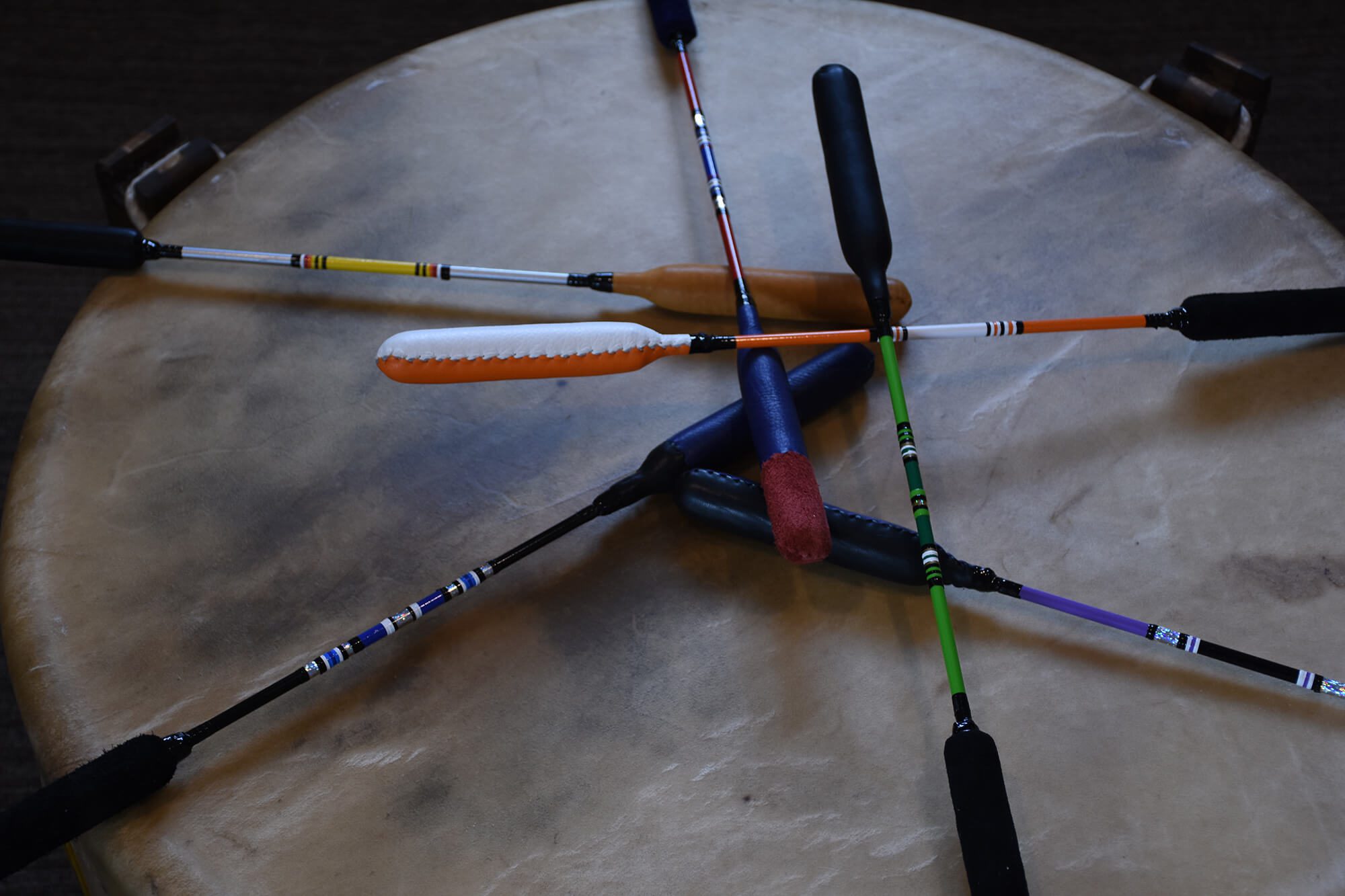
Happy New Year and welcome to our winter newsletter!
It’s been a busy fall season at Xyólheméylh. Our Elders Advisory held their annual forum at Harrison Hot Springs in early September. They were led by Len Pierre and his team at Len Pierre Consulting in a workshop on Addressing Lateral Violence and Leading with Lateral Kindness. The learnings will be beneficial for our whole organization as the Elders are embedded in much of what we do. A big thank you to the New Relationship Trust for their funding of this important meeting.
The Visions and Voices Youth also held their annual three-day forum at Zajac Ranch. Fifty youth attended and participated in activities such as wall climbing and archery and attended a talk by Madelaine McCallum who is a young Indigenous dancer, motivational speaker and actor. They also met with Jessy Neal from the Representative for Children and Youth’s office and provided us with valuable suggestions of how we can improve our services with them.
We were pleased to attend the inaugural Loving Justice: Breathing Life Into Our Own Laws national conference in Vancouver. The conference was organized by the Indigenous Child and Family Services Directors, Our Children Our Way Society and explored jurisdictional questions and emerging issues. It was a wonderful event and you can read more about it in an article later in this newsletter.
In October First Nations chiefs from across Canada voted down a resolution to fully accept a settlement agreement on long-term reform of First Nations child and family services. Chiefs, experts, lawyers and community members identified numerous weaknesses within the draft agreement, including: an inadequate funding approach that will not end Canada’s discrimination against First Nations children; governance structures that lack transparency and are not accountable to First Nations; a weak dispute resolution process; a 10-year timeline with no mechanisms to prevent the recurrence of Canada’s discrimination.
By the end of the Assembly, the Chiefs came together and passed two resolutions directing a pathway forward. The Chiefs agreed on parameters and goals for a renewed negotiation process which Canada has now rejected.
The resolutions call for a transparent and accountable negotiation process guided by a national Children’s Chiefs Commission. The renewed negotiations would be directed toward achieving a new agreement that will hold Canada fully accountable for finally and fully ending its discrimination against First Nations children.
We support all First Nation’s journey towards reclaiming inherent rights to have jurisdiction for children and family services. In the New Year, we are reaching out to all communities to have discussions on how best to collaborate on prevention services for children, families and communities and we wish to continue to increase our collaboration with external partners.
Melí Klésmes qas te Xá:ws Syilólem (Happy New Year)
Xyólheméylh Executive Leadership Team – Nazeem Ratanshi, Rod Spitzig, Laura-Dawn Wilkin
Elders' annual forum

At Xyólheméylh, we have 22 Elders who play important role in all we do. They offer recommendations and guidance on policy and practice to staff and leadership. They provide input and evaluation on the role of culture in day-to-day operations. They have a role in training and in hiring. They also play a lead role in offering healing through traditional ways of dealing with stress and grief. Finally they participate in collaborative practice with children, youth, families, staff and caregivers. The Elders have a calming influence in difficult situations.
Xyólheméylh’s Elders held a working retreat September 8 to 10 at Harrison Hot Springs. The retreat was an opportunity to learn, nurture team building and create the time and space to focus on issues important to them. It is also an opportunity for use to show our appreciation for all they do by providing time and space for wellness and self-care.
One of the Elders, Leo Nolin, gave an informative presentation on Métis history and culture. This was followed by a presentation by Len Pierre on Addressing Lateral Violence and Leading with Lateral Kindness. Len talked about what lateral violence means, how it manifests, and tips and tricks to deal with it. Instead of celebrating people, it manifests as adult bullying and aggression in the same community. “Hurt people hurt people,” said Len and pointed to the direct result of colonial violence that Indigenous people, as well as other marginalized and targeted people, have experienced. Leading with lateral kindness, according to Len is a about creating a culture of feedback. The following day was dedicated to debriefing on Len’s training and discussing how they can share the teachings with staff and leadership at Xyólheméylh.
Thank you to the New Relationship Trust for funding this event and thank you to our Elders for their dedication to helping children, youth and families.
Meet an elder: victoria l'hirondelle
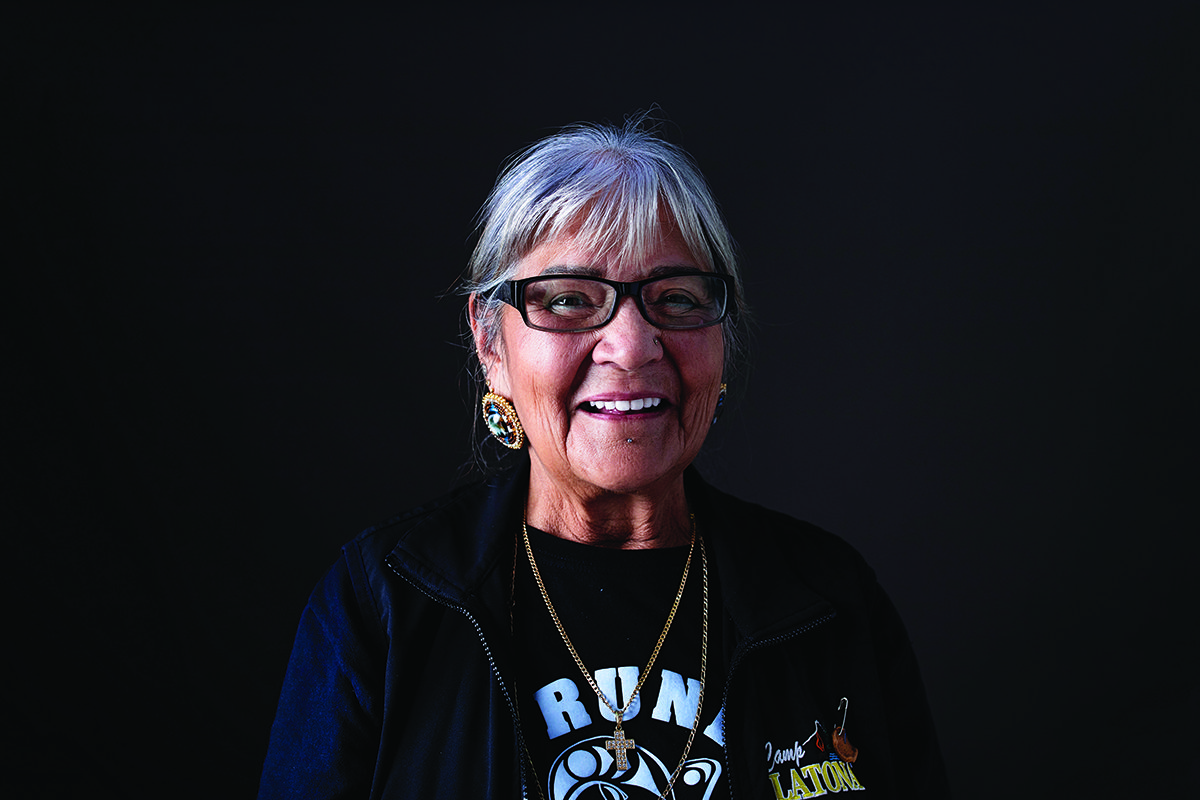
Victoria L’hirondelle’s journey has made her uniquely qualified to be an Elder with Xyólheméylh. In her role as an Indigenous EA with the Chilliwack School Division for 27 years, she has made a huge difference in the lives of so many children and families. As a child of the Sixties Scoop, she also knows what it means to be in foster care, separated from her parents and her culture. “I can identify with a lot parents who have lost their kids and I can identify with the kids who still want to be with their parents,” says Victoria.
Victoria's parents were Cree from the Sawridge and Enoch First Nations in Alberta. Her father was in the army so she was moved around a lot and grew up in Whitehorse, Victoria and Vancouver. When she was in Grade Five she was separated from her family and became a child in care.
It wasn’t until she was older, inspired by watching an Indigenous dance troop called Traditional Mothers, that she became interested in Indigenous culture. Before joining the dance troop, a requirement was to take a traditional parenting course. “It opened up my life, there were teachings I didn’t know about,” says Victoria. From there she met an Indigenous Elder known as Holy Cow (Marie Fayant) who introduced her to Sundances in 1997. She says it changed her whole life and made her realize how important culture and family are.
Victoria married into the Leq’a:mel First Nation, and had five children of her own and is now a grandmother to 13 grandchildren. “Seeing your kids happy and healthy is one of the greatest things.” She became familiar with Xyólheméylh through her involvement with the community care committees.
She became an auxillary Elder first and then a member of the Elders Advisory Committee. She just retired from her job with the Chilliwack School Division and is looking forward to being able to spend more time with clients. “I love being an Elder with Xyólheméylh,” says Victoria. “They treat us so well, they are very thoughtful and kind and I feel respected.”
Victoria recommends that social workers put themselves in the client’s shoes. She acknowledges this may be harder for some of the younger social workers who have not had children of their own. “It’s about taking the time to listen to the young ones and hear what they have to say. It’s so important to realize how our words and actions make such a difference to kids in care.”
Elders Teaching: Working with Elders
In this video Elder Helen Joe discusses the proper protocols when working with Elders.
Meet a Caregiver: Terri-Jo Shouting

On September 12, Xyólheméylh staff held a celebration in an Abbotsford park to honour Terri-Jo Shouting and her family. Terri-Jo has two biological girls, Teaghan, age 17and Hazell, 14; one boy Taysen who is 15; and three foster children – two nephews, Thomas age 16 and Zachary, 13 and a niece, Linda who is 11. The family was joined by social workers Sandy Atkin, Desiree Schellenberg, Mikeayla Popowich and Lenore Unraw, who is on the administrative team – all of whom played a role in supporting the family through the process.
The occasion for the celebration was a 54.01 court order, which means a decision was made that a child or youth cannot return to their parent’s care and a more permanent plan is created for stability. When a permanent order is granted, the care provider becomes the child’s permanent legal guardian. Thomas and Zachary, her nephews, are now under the permanent care of Terri-Jo, and pictured with her in the photo above.
We were also celebrating the return of the niece, Linda, to her bio father, Frank, who also attended the celebration. The situation was extremely complicated and had been going through the courts for years. Terri-Jo describes the last few years and especially the last nine months as “chaotic.” She says the decision to grant her custody had provided a sense of stability for the kids and a sense of permanency. She noticed the change in the kids immediately once the decision was made. She says they were less anxious and much happier, and her own kids are very welcoming of the additions to the family.
Terri-Jo is from the Blackfoot First Nation in Alberta, but she was raised by her German/Russian mother so did not have much exposure to her Indigenous culture until much later. Her father was a spiritual healer on the Blackfoot reserve and gave Terri-Jo her first teaching before he passed. Since then it’s been a journey of self-discovery. Terrie-Jo is all about helping and uplifting people and is currently working at Fraser Valley Aboriginal Friendship Centre as the early childhood development coordinator.
“This is an amazing family,” says Xyólheméylh Elder, Maria Reed. “They have gone through so many trials and tribulations, they all have had different journeys, but when I see them all together, they are a strong team. I am so proud of all of you,” Maria told the family.
“Terri-Jo is a strong warrior woman spirit, she’s always learning and taking courses, but when the kids show up at her house, she makes room for them.” Terri-Jo never turns away children and youth who need a home and has cared for many other children over the years.
Staff and the family shared Chinese takeout at picnic tables, Maria blanketed the family and Xyólheméylh staff gave the family presents of drum making kits and smudging kits. “The blanketing is to wrap them up with love,” says Maria.
At the end of the blanketing, Terri-Jo thanked the Xyólheméylh staff for their support. “I felt very supported by Xyólheméylh and I’m so grateful.”
Terri-Jo and Maria run a support/cultural circle for Xyólheméylh caregivers every second Thursday. The circles are mostly virtual but sometimes in person and involve cultural teachings such as medicine walks. The goal of the circle is to create a community while supporting children in care to grow with cultural and spiritual balance.
We lift our hands to Terri-Jo and other caregivers who provide loving and safe homes for children and youth. If you are interested in becoming a caregiver, please contact Norma Commodore at [email protected].
Community Profile: Xwóxwelá:lhp (Yale) First Nation
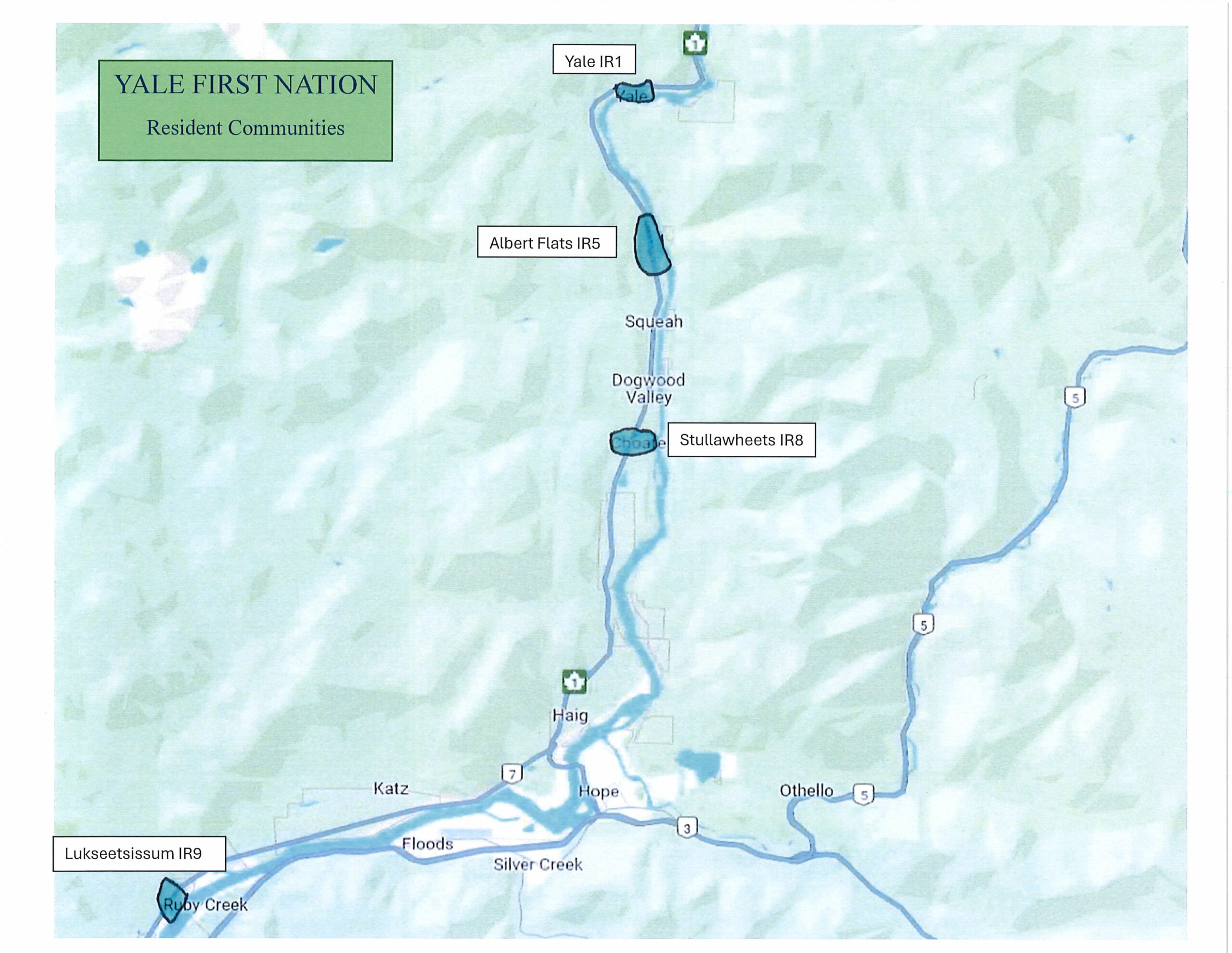
Xwóxwelá:lhp First Nation (Yale), has seen many positive changes over the last five years, according to Paul Keller, Community Social Worker and Janita Peters, former Community Social Worker and now Elected Councillor. Paul and Janita, under the direction of Chief Troy Peters and Council, have been responsible for overseeing many of those changes.
Xwóxwelá:lhp’s Community Social Work Department is responsibility for child protection and prevention, income assistance, Elder support and some other community development initiatives. Now that Janita has moved on to being an Elected Councillor, Xwóxwelá:lhp is looking forward to a new social worker joining them in the new year, so they can return to being a two-person team. Due to the diverse workload, two Community Social Workers are required to continue making progress. Much of the work is fortunately preventative, focusing on building trust, respect, and positive working relationships with membership.
Xwóxwelá:lhp is located north of Hope in the Fraser Canyon and has 197 members, most of whom live off reserve, 44 on reserve. One of the challenges facing Xwóxwelá:lhp is that the nation’s territory is split into various communities along highways 7 & 1, spanning 34km. Lukseetsissum and Stullawheets are two communities that the Social Work Department has focused on developing onsite supports and services. The community being separated into two parts means a lot of travel and that they need two of everything.
With the help of some funding from Xyólheméylh, as well as a number of other donors, including the United Way, Xwóxwelá:lhp Social Work Department built two community gardens that are an acre each and include orchards. The Department further initiated the development of two community centers at Stullawheets and Lukseetsissum Community Centers to fill a much-needed void. Xwóxwelá:lhp First Nation also built a greenhouse which became operational this year.
The work on the community gardens began during Covid and it has become so much more than a source of much-needed food stability. It is also a neutral and safe space next to the Stullawheets and Lukseetsissum Community Centers where the community can come together in a healthy way. Janita says in a way, the gardens have become prevention work.
Another priority project in the last two years has been establishing an Elders Group. “Elders are the heartbeat of the community,” says Paul. “I really respect what the Elders have done, especially considering the community distances. It’s been very meaningful work as Xwóxwelá:lhp’s Community Social Worker to be granted the privilege to sit with them each month and help support their plans for their community.”
Paul and Janita say that listening to what the community wanted was very important, and a necessary part of gaining the trust of the community. “It lights you up when you see them get their needs met and/or wants met through the Xwóxwelá:lhp Social Work Department. This could not be possible without the cooperation of membership participation and numerous funding initiatives.” says Paul.
Paul and Janita are optimistic about the community’s future and believe one of ways to move forward is through supporting the Elders and connecting them to the next generation so they can take over the role of keeping the community culturally connected.
smimeyath ceremony
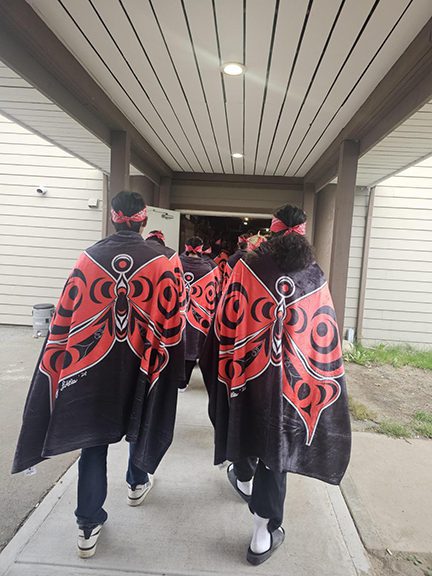
On October 3, Xyólheméylh held its first Smimeyath Ceremony in four years at the Sumas First Nation Longhouse. The ceremony is for youth who are "aging out of care." It had been cancelled for several years because of Covid. Smimeyath is the Halq'emeylem word for butterfly and symbolizes the journey from youth into adulthood. The butterfly represents transformation, rebirth, movement through life as well as lightness of being. An important message carried by the spirit of the butterfly is about our ability to go through important changes in life with grace and lightness. This is a message of hope our youth will carry and share as they go forward on their journey.
Twenty-eight youth attended the ceremony. They were blanketed, symbolizing being wrapped in love. They were also given extra blankets and bandanas to give to their caregivers and family members who were in attendance. Elder Rosemary Treherne told the youth she was so proud of all of them, Elder Glenda Campbell said their participation in the ceremony showed how proud they are of their culture and urged them to keep their culture close.
Reflections from the Loving Justice: Breathing Life into Our Own Laws Conference by Leona Naidoo
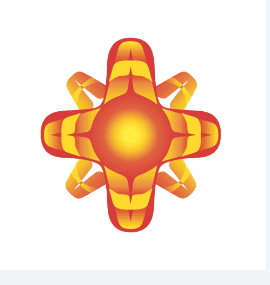
From September 8–11, 2024, a select few Xyólheméylh staff members had the privilege of attending the inaugural Loving Justice: Breathing Life into Our Own Laws national conference. Hosted on the unceded and ancestral territories of the Sḵwx̱wú7mesh, xʷməθkʷəy̓əm, and Səlilwətaɬ Nations, this groundbreaking event provided an opportunity to explore critical jurisdictional questions and emerging challenges through a series of insightful presentations and workshops led by Indigenous community experts and legal scholars. The conference focused on building a community of practice centered on the resumption of jurisdiction over child welfare by First Nations, Métis, Inuit, and Urban Indigenous communities.
Key Takeaways from the Conference:
- Well-being of Indigenous Children and Youth: The conference spotlighted the necessity of sharing knowledge and best practices for ensuring the well-being of Indigenous children and youth. Participants engaged in meaningful discussions around child welfare resumption, reflecting on the importance of Indigenous governance and the continuation of traditional laws to support the next generations.
- Legal and Jurisdictional Challenges: A major theme of the conference was identifying and addressing the pressing legal and jurisdictional questions that Indigenous communities face today, including issues surrounding advocacy, governance, and resource allocation. The dialogue helped build a clearer understanding of the legal framework required to support community rights and effective child welfare practices.
- Community of Practice: One of the most impactful outcomes was the co-creation of a community of practice designed to foster ongoing learning, knowledge exchange, and capacity building. This initiative ensures that Indigenous communities can continue to collaborate on child welfare jurisdiction and improve their systems in a way that respects their cultures and traditions.
A highlight of the conference was hearing from distinguished speakers such as Cindy Blackstock and Mary Teegee, both of whom have made significant contributions to Indigenous child welfare and advocacy.
- Cindy Blackstock, a member of the Gitxsan First Nation and Executive Director of the First Nations Child and Family Caring Society of Canada (FNCFCS), is a renowned advocate for Indigenous children’s rights. She has played a central role in the fight for equity in child welfare, most notably in the landmark human rights case that found the Canadian government guilty of systemic discrimination against First Nations children. Blackstock was also instrumental in the development and implementation of Jordan’s Principle, which ensures First Nations children have access to public services without jurisdictional disputes. Her dedication to social justice and equality has led to important changes in how Indigenous children are cared for in Canada.
- Mary Teegee, a member of the Takla Lake First Nation and Executive Director of Child and Family Services at Carrier Sekani Family Services (CSFS), has been a leading voice in the reclamation of Indigenous jurisdiction over child welfare. Under her leadership, CSFS has developed and implemented culturally informed child welfare systems that reflect Carrier Sekani values. Teegee has been an advocate for the use of Bill C-92, which supports Indigenous communities’ inherent rights to govern their own child welfare systems. Her work in Carrier Sekani has demonstrated how Indigenous-led services can prioritize family preservation and community well-being.
Their insights into the continuing developments in Indigenous child and family services within the framework of Indigenous jurisdiction were invaluable. The speakers emphasized the need for Indigenous governance and cultural integrity in child welfare, providing attendees with critical reflections on how communities can approach governance, advocacy, and systemic reform.
A major topic of discussion at the conference was the upcoming Final Settlement Agreement (FSA), which will be signed by Chiefs across Canada. The FSA is part of the resolution process following the Canadian Human Rights Tribunal (CHRT) rulings that found the Canadian government had discriminated against First Nations children by underfunding child welfare services. This agreement is an essential step in addressing the harm done to Indigenous children and families and includes provisions for compensation.
The FSA also represents a crucial move towards restoring jurisdiction over child welfare services to First Nations communities. This aligns with Bill C-92, which recognizes the inherent rights of Indigenous peoples to govern their own child welfare systems. The signing of the FSA will have significant implications for Indigenous child welfare governance, and Chiefs are encouraged to fully understand the terms of the agreement before signing. It has been emphasized that legal experts and trusted advisors should be consulted to present abridged versions of the lengthy document to ensure informed decision-making for the benefit of future generations.
The agreement includes both financial compensation for past harm and commitments to reform systems moving forward, with a strong focus on ensuring culturally appropriate, community-based child welfare services.
Among the many enriching breakout sessions, the Carrier Sekani session stood out for its depth of insight into how their jurisdiction was developed and implemented. The Carrier Sekani Tribal Council (CSTC) and Carrier Sekani Family Services (CSFS) have been leaders in asserting control over child welfare services in alignment with their traditional laws and governance. Their efforts are centered on reducing the overrepresentation of Indigenous children in foster care by keeping them within their communities, ensuring family and cultural continuity.
Through the framework of Bill C-92, CSFS is actively reclaiming jurisdiction over child and family services, they are working to integrate Carrier Sekani cultural practices into child welfare, emphasizing traditional governance and local capacity-building. This transition includes negotiating with federal and provincial governments, securing funding, and advocating for systems that reflect Carrier Sekani customs and values.
As someone with a legal background and a personal interest in pursuing jurisdiction in Indigenous children and family services, I feel honored to have been a part of this important conference and hope to be part of the change to come. The conference provided crucial insights into how legal frameworks and traditional governance intersect in the realm of Indigenous child welfare.
visions and voices Annual Forum
The Annual Visions and Voices Annual Forum took place September 20 to 22 at Zajac Ranch in Mission. It was attended by 50 youth in care with activities including a petting zoo, making tie dye shirts, wall climbing, slahal, archery, karaoke, smore's, and stories around the campfire. Special guest was Madelaine McCallum, a young Indigenous dancer and motivational speaker who shared her own story of healing from a difficult childhood. The youth also met with a Jessy Neal from the Representative of Children and Youth's office.
caregiver appreciation
On October 29, Xyólheméylh staff honoured our caregivers / support parents with an event at Shxwha:y Village Cultural Centre. The evening included a performance by the Dancers of Damelahamid from Gitxsan First Nation, a meal and gifts. As speaker, Matthew Schell said: "As Indigenous people we think of being a caregiver as a sacred role, so we honour you tonight." We raise our hands to all our wonderful caregivers and support parents!
children's christmas party
We held two Christmas parties for children and youth in care. On November 16 the event was held in Chilliwack and on November 23 the event was in Abbotsford. The event featured lunch, a photo booth, beading, cookie decorating, drum making and painting, as well as an appearance by Santa and Mrs. Claus.
upcoming events
